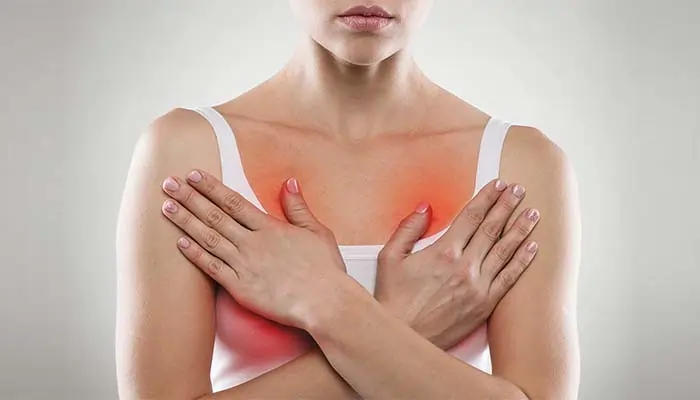Advertisement
Risk Factors for Breast Cancer
Understanding the risk factors for breast cancer can help you take proactive steps to reduce your risk. While some risk factors are beyond your control, others are lifestyle-related and can be modified to lower your chances of developing the disease.
Non-Modifiable Risk Factors
Certain risk factors for breast cancer cannot be changed, but being aware of them can help you and your healthcare provider make informed decisions about your health:
- Gender: Women are at a significantly higher risk of developing breast cancer than men.
- Age: The risk of breast cancer increases with age, particularly after age 50.
- Family History: Having a first-degree relative (mother, sister, daughter) with breast cancer increases your risk.
- Genetic Mutations: Inherited mutations in genes such as BRCA1 and BRCA2 can significantly increase the risk of breast and ovarian cancers.
- Personal History of Breast Cancer: Women who have had breast cancer in one breast are at an increased risk of developing cancer in the other breast.
- Dense Breast Tissue: Women with dense breast tissue have a higher risk of breast cancer and may require additional screening methods.
Modifiable Risk Factors
Lifestyle factors can influence your risk of developing breast cancer. Making positive changes in these areas can help reduce your risk:
- Hormone Replacement Therapy (HRT): Long-term use of HRT, particularly combined estrogen-progesterone therapy, is associated with an increased risk of breast cancer.
- Alcohol Consumption: Drinking alcohol increases the risk of breast cancer, with the risk rising with the amount consumed.
- Obesity and Overweight: Excess body weight, particularly after menopause, is linked to a higher risk of breast cancer.
- Lack of Physical Activity: Regular physical activity can help lower the risk of breast cancer by maintaining a healthy weight and regulating hormone levels.
- Reproductive History: Women who have their first child after age 30, do not breastfeed, or have never had a full-term pregnancy are at a slightly higher risk.
- Diet and Nutrition: Diets high in saturated fats and low in fruits and vegetables may increase the risk of breast cancer. Conversely, a diet rich in plant-based foods may help lower risk.










